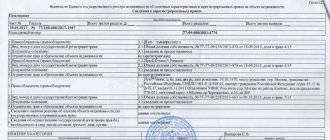Legal documents are something that every citizen should know about. The point is that both adults and children can encounter such documentation. Especially when it comes to concluding transactions involving real estate. Unfortunately, not everyone knows what a title document is. And where to get it, too. Next, we will try to understand the relevant topics. In fact, everything is simpler than it seems. And even a teenager is able to understand what he has to deal with.
Types of documents confirming rights
Title and title documents for real estate in Russia are different. It all depends on the life circumstances under which this or that property was acquired.
The main legal document is the certificate of title to real estate. It was issued after state registration of the relevant powers in Rosreestr.
In addition, the supporting documents are extracts from the Unified State Register of Real Estate, but they are limited in their effect. The point is that such documentation confirms the rights to the object on a specific date.
Title documentation for real estate at the stage of unfinished construction
In this case, events may develop differently depending on what set of rights and obligations a particular person has in relation to the land plot on which the construction of the building has not yet been completed.
A land plot can be in the following statuses:
- Property.
- Indefinite continuous use.
- Inherited lifelong ownership.
Here it is also important to take into account the type of permitted use . If we are talking about individual housing construction, then difficulties should not arise, since the name already speaks for itself about the purpose of this type of plot.
But things are completely different with private household plots (auxiliary personal holdings). If it is located behind a populated area, then the construction of objects on such a site is prohibited, because such a plot of land, according to the law, belongs to the field. Of course, you will not be able to register a building on such a site. According to the law, government agencies will oblige you to demolish the building, regardless of the stage of its completion.
If you have title papers for the land, this means that you are its owner , and, accordingly, the owner of the unfinished object. In this case, you have the opportunity to register the object.
To do this, you must carry out a list of the following works:
- Carry out work on technical inventory of the facility.
- Obtain a permit for construction work.
- Obtaining a cadastral passport for an unfinished object.
- Submit the required package of papers to state registration.
The above list of actions is appropriate when the land plot is owned. If we are talking about regular use (indefinite), then such ownership is possible only for government agencies, but not for individuals.
Lifelong inheritable ownership is not property: according to the law, land plots belong to the state, and their “lifelong owner” does not have the right to dispose of them, that is, to formalize various types of transactions, with the exception of inheritance. Government authorities have the right to seize such areas in case of improper use or in cases where the country urgently needs it.
A citizen has the right to construct objects and then register them in his name. According to the law, the owner can dispose of them at his own discretion, that is, he has the right to sell, issue a deed of gift, etc. In such a case, from a legal point of view, the rights to the land plot will transfer to the new owner upon sale of the property.
There is another option, which is to
register the land plot as property . This procedure should begin with land surveying. After that, we submit to the state authorities a certificate with information about the land survey, a document indicating the provision of the land plot for lifelong inheritable possession and a cadastral passport for it. Then the process of registering unfinished property is carried out in a similar manner as registering owned land.
What are the types of legal certificates?
What else is worth paying attention to? The paperwork associated with real estate is of interest to many. Sometimes it causes a lot of problems. Especially if a person needs to prove/refute rights to property.
As already mentioned, you can find title documents. This is a broader category of housing certificates. These include:
- contract of sale;
- property exchange agreement;
- equity participation agreement;
- annuity agreement;
- deeds of gift;
- wills;
- certificates of acceptance of inheritance.
All these extracts, as already mentioned, help to establish the reason for the formation of rights to real estate. Accordingly, they can also be used as legal documents. This is a fairly common occurrence, especially in litigation.
Types of title documents
Since this category of official papers includes many varieties, this article will present only an exhaustive list of those that regulate the issue of transfer of ownership from one owner to another. Primary documentation of newly emerged objects requires a separate analysis and is the subject of a separate article.
Property transaction agreements
Agreements are the most common types of title documentation obtained as a result of property transactions: purchase and sale, exchange or donation. The main characteristics of this documentation are as follows:
- drawn up by the parties personally or with the participation of an authorized representative;
- signed by the parties personally or by their authorized representatives;
- can be certified by a notary;
- must have a registration mark from Rosreestr.
The rules for drawing up contracts are regulated by civil law. According to Article 550 of the Civil Code of the Russian Federation, they have only written form and are executed on paper. According to paragraph 1 of Article 551 and paragraph 2 of Article 558 of the Civil Code of the Russian Federation, they come into force only after registration. It was repeatedly noted that the owner did not have a registration mark, but he did have a certificate of ownership. In this case, the problem can be corrected by contacting the multifunctional center (MFC) with a certificate of ownership or an extract from the Unified State Register, writing a statement about the alleged technical error. If the procedure itself is performed properly, the registration mark will be placed after checking the information available in the database.
I also recommend that you pay attention to the fact that the contract may contain a notary certification mark, in accordance with Article 163 of the Civil Code of the Russian Federation. In no case should it be considered to replace the registration mark. Registration with a notary has legal force, but information is entered into the information bank only upon registration with Rosreestr. Notarized contracts must have two marks: about certification and about registration.
The apartment purchase and sale agreement is a document of title, as it records the transfer of rights to real estate from the seller to the buyer
The owner must have a property transaction agreement if he bought an apartment, land or house. And also if he exchanged it for other property or received real estate as a gift. This documentation can be obtained from the counterparty to the transaction at the notary or legal office where the agreement was concluded for the purpose of conducting the transaction. But what to do if such an agreement is lost? In this case, the document should be restored by writing an application to the law firm or notary office where the transaction was registered, requesting its duplicate.
The resulting duplicate has the same legal capacity as the lost original. But it may arouse suspicion among incompetent buyers, so in this case it is best to obtain an additional document - an extract from the Unified State Register of Rights (USRE), which will indicate the latest information about the ownership of the object. You can obtain such an extract at the MFC or on the government services portal.
Please note that the document can only be ordered on the government services website, but you will have to receive it at the same MFC, saving time on the initial visit.
Certificates of inheritance by law and by will
A certificate of inheritance is issued to the owner only after the death of the previous owner. It is characterized by the fact that it certifies the fact of transfer of real rights to real estate, according to the following:
- The last will of the deceased, expressed in a testamentary disposition.
- The degree of relationship that allows entry into real rights to the property of the deceased in relation to queues under the law.
It looks like an official document issued by a notary office, with a mandatory registration mark by Rosreestr.
A certificate of inheritance rights is issued by a notary
Receiving an inheritance by will and by law has equivalent legal capacity, as indicated by Articles 1110, 1111, 1116 of the Civil Code of the Russian Federation. However, it must be taken into account that most often, according to statistics from judicial practice, inheritance disputes arise regarding wills that deprived relatives are trying to challenge. In this case, I would like to give relevant advice to both the buyer and the seller. The buyer should check, and the seller should additionally obtain a certificate confirming the absence of legal disputes and claims to the property by relatives. A certificate of “no encumbrances” can be obtained from the MFC or ordered on the government services website. Or - find out the period that has passed since entering into inheritance. If it is more than three years old, then, according to Article 196 of the Civil Code of the Russian Federation, the statute of limitations has expired and real estate can be purchased.
If the owner has a certificate of inheritance, then in order to participate in the transaction it must meet the following requirements:
- The heir must be the sole owner of the property, or the property is sold by all heirs jointly acting as the buyer.
- If there is more than one heir, then they must formalize a notarized waiver of the inheritance share in the property or sell their shares at the same time.
- If all heirs simultaneously sell an inherited property, they must first register their joint ownership as shared ownership.
Therefore, the following may be attached to the certificate of inheritance:
- notarized waiver of the share in favor of the seller;
- agreement on the allocation of shares;
- the court's decision.
If such documentation is attached, it means that the heir to the property has prepared in good faith for the upcoming transaction.
Agreements on division of property and allocation of shares
Such a document can act as a legal document only if the marriage is dissolved. For example, on the basis of a voluntary decision of the spouses that the dacha or apartment belongs to one of them, in exchange for the fact that the second is left with a car or a commensurate amount of money.
A property division agreement involves the voluntary transfer of part of the property to a spouse
It must be taken into account that an agreement always has an additional nature and comes into legal force only when there is a basic document on the emergence of a joint right. That is, before dividing the apartment, it had to be jointly purchased or privatized. In this case, two documents must be available:
- property transaction or privatization agreement;
- certificate of division of property.
The question of the status of the agreement as a legal document is controversial, however, it appears to be legal for the following reasons:
- without it, the spouse cannot be considered the full owner;
- it must be presented during a property transaction.
If the spouses separated without drawing up such an agreement after the divorce, they can meet with a notary and draw it up. This action will end mutual dependence on property issues. If the second spouse refuses to draw up an agreement after the divorce, the issue can be resolved in court.
A post-divorce agreement is not required if the property was inherited by one of the spouses, or received as a gift - even if this happened during the period of cohabitation. Such property is not considered common and does not participate in the division.
Heirs primarily receive property through the inheritance estate. Therefore, after receiving a certificate of inheritance, they have to formalize the division of the inheritance mass:
- agreement on the division of the inherited estate;
- or an agreement on the allocation of shares in joint property.
In this case, the agreement also acts as an additional document of title, which is attached to the certificate of inheritance.
For former spouses who do not want to burden themselves with drawing up an agreement, we can recommend the sale of an apartment or other object with an annex instead of an agreement - permission to sell from the second spouse. It must be drawn up in full form and certified by a notary. This document will be fully equivalent to an agreement, although it has no relation to title documentation.
Court decisions and administrative acts
Administrative acts always act as title documents in relation to newly allocated or privatized plots. They are issued for plots indicating the cadastral number and other cadastral and technical characteristics. The act is drawn up on the letterhead of the administration of the locality with an official message about the transfer or establishment of ownership with the details of the protocol of the administrative commission on the allocation of such a plot. If the plot is sold at auction, the following is attached to the deed:
- tender protocol;
- receipt for payment of the cost of land.
In addition, acts can be issued if the primary document on the acquisition of land ownership is lost. Therefore, if you do not have documents for the land, you should contact the land department of the local administration or the land management department. Only if the administration refuses to recognize the ownership of the plot can you go to court by submitting an official refusal to the court.
Court decisions have the widest range of powers. They are used, among other things, in the event of a problem with the title document. According to Articles 209, 321 of the Code of Civil Procedure of the Russian Federation, they are subject to immediate execution, with the exception of cases of appeal in a higher court or in the court of cassation. The court's decision is as follows:
- recognize as valid a document whose text has been damaged;
- replace a lost title document;
- replace an incorrectly drawn up title document;
- replace a obviously missing title document;
- register the property with cadastral registration in Rosreestr;
- make the required registration entry;
- recognize the right of ownership of the subject.
Rights to real estate can be transferred from one entity to another and in a forced, judicial manner
Depending on the circumstances, a court decision issued in the form of an extract can act as an independent document of title - if it certifies the fact of the emergence of property rights to the object. For example, when recognizing rights to self-construction or other types of recognition of property rights. When a court decision establishes the legal capacity of the disputed primary document, it acts in tandem with it.
For example, if the will was disputed by the relatives of the deceased, and the court sided with the heir under the will, the court decision must be provided in conjunction with a certificate of inheritance. If the court sided with the relatives, the will loses legal force, and the court decision remains the only document of title and is subsequently presented as an independent document.
There is no need to delay the procedure for obtaining or restoring the original document. If you have received a refusal from institutions that could issue a duplicate or an administrative act, you must immediately (within 10 days after the official refusal) apply to the court for help. According to the regulations, all issues related to real estate are resolved in the district court at its location, as stated in Article 30 of the Code of Civil Procedure of the Russian Federation. Having received a court decision, you urgently need to register the property in Rosreestr and obtain an extract from the Unified State Register of Real Estate. After this, ownership of real estate will leave no doubt about its legality.
Legislative changes
For some time now, certificates that can be considered legal confirmation have changed in Russia. The thing is that some of them were abolished. And this news caused a lot of problems for property owners.
The title document, the certificate of title to property, has been abolished since 2021. From now on, such papers will no longer be issued under any circumstances. Instead of a certificate, an extract from the Unified State Register of Real Estate in the established form is now used.
In addition, the authorized bodies no longer issue cadastral passports. They were also completely replaced by an extract of the established form. This means that if you need to confirm the rights to a particular object, you should think about obtaining a certificate from the Real Estate Register.
Document requirements
The following requirements apply to documentation:
- compilation according to standards approved by legislative acts;
- registration according to the approved form;
- notarization (if a representative is a party to the transaction, a power of attorney, which confirms his authority, also requires notarization);
- certification with seals;
- signing by authorized parties.
It is also worth noting that papers are not considered valid if they are written in pencil, have erasures, additions and unspecified corrections, or are damaged so seriously that their interpretation is affected.
The acts must be drawn up competently and accurately so that there are no grounds for refusal or suspension of registration. Refusal is possible if the form or content does not comply with the requirements of the law, the documents are signed by unauthorized persons or issued by a state body or local government body outside their competence.
Where to get
It is recommended to order title documents for real estate immediately before concluding a transaction or legal debate. This technique will help to avoid unnecessary questions from authorized bodies. But where can you order such documentation?
There is no clear answer to this question. The thing is that documents on property rights can be ordered from various government services and organizations. And everyone chooses where to turn.
At the moment, you can request the documents listed above through:
- Multifunctional Center;
- one-stop service;
- organizations like “My Documents”;
- cadastral chambers;
- Rosreestr.
Extracts of title are kept in notary offices and in the hands of participants in transactions. Accordingly, in order to restore such an agreement, you need to contact a notary.
Possibility of ordering online
Title documents are extracts without which no transaction with property can be carried out. This is simply not provided for by the current legislation of the Russian Federation.
Some documents in Russia can be issued via the Internet. The papers being studied are no exception. They are proposed to be issued on the State Register website or on third-party web resources. For example, on the portal “Rosreestr.net”. Next, we’ll figure out how to cope with such tasks.
Is the order current?
A warrant for an apartment was relevant during Soviet legislation. With the adoption of the Constitution of the Russian Federation, the laws of the Soviet Union lost force. Accordingly, documents issued on the basis of outdated laws have lost their relevance. Instead, contracts are used:
- privatization;
- social hiring;
- commercial rental.
And the use of the warrant in regulatory proceedings has lost its force.
Ordering instructions - contact the authorities in person
It is important to order title documents for real estate in a timely manner if the citizen does not have them in his possession. Moreover, it is better to present the second party to the transaction or the court with fresh copies of the certificates listed above. This will help prove the relevance of the information.
To personally draw up a document on ownership of a property, you will need:
- Conclude one or another transaction providing for the transfer of authority over property.
- Collect a certain package of documents. We'll talk about it later.
- Contact the authorized body with an application to issue a particular certificate.
- Contribute funds in the form of state duty, if provided for by the legislation of the Russian Federation.
- Pick up the completed certificate within the specified time frame.
That's all. It sounds quite simple, but in reality citizens may face certain difficulties. For example, when choosing a place to submit an application or when preparing a package of documents to implement the task.
What to pay attention to
Real estate agency employees advise not to neglect checking documents, even if the transaction does not require any evidence.
There may be no certificate of title if the transaction was completed before 1997 (before the advent of Companies House). However, in this case, the title document itself must have a registration stamp.
Always compare the information in the documents and the actual state of affairs: for example, if the seller demolished the house without obtaining permission to reconstruct the house and without terminating ownership of the building, the transaction will not be able to be completed because the documents for the transaction are not ready
Please note that the data specified in the title document and the identity card match. For example, the names Natalia and Natalya are often confused, Daniil can turn into Danila, and the dots above the letter “e” must be written or not written exactly as indicated in the passport - Fedor and Fedor with the same last names can be two different people.
If you find discrepancies, refer to the spelling in your passport. All changes must be made to the title documents.
The second thing that needs to be checked is the absence of encumbrances on the right of use and restrictions on payments (when the property is pledged to a bank or an individual or final payments have not been made to the seller as in the case of installment payment).
Encumbrances can (and should) be removed, for which you need to contact the regional justice authorities with documents confirming the absence of encumbrances. This could be, for example, an act of mutual settlements.
The third thing that needs to be compared is the numbers - the area of the housing or plot, the number of rooms, house and apartment numbers. If the numbers do not match, look at the most recent document by date of issue. If the apartment has undergone redevelopment or the new owner of the land plot, after the surveying procedure, has discovered that its area differs from that indicated in the documents, it is required to make changes to the certificate of ownership of real estate by contacting the registration authority with a document that reflects the latest technical characteristics of housing.
The fourth document that needs to be studied is an extract from the house register (Form 9), which indicates how many people are registered in a given living space and their age. If you are buying or selling a plot of land on which there is only the skeleton of a house, you must obtain an archival extract of the same form.
Rosreestr website and USRN extract
The title documents for a land plot are no different from similar papers for apartments and houses. Only the information that is written in them.
As already mentioned, if you wish, you can issue some title certificates via the Internet. For example, on the Rosreestr website.
To do this, a citizen will need:
- Go to the official State Register page, and then select the “Services” section there.
- Click on the line “Providing information from the Real Estate Register”.
- Fill out the application electronically. It contains information about the property, as well as about the customer.
- Submit a request for processing.
- Make a payment in the form of a state fee for the extract.
All that remains now is to pick up the finished documentation from the authorized body at the appointed time. To successfully send a request, you need to log in to your “Personal Account”. The option is available to those registered on State Services - there is no need to create a separate profile on the State Register portal.
Ownership. Information about title documentation
First of all, it is necessary to answer the question of what constitutes property rights. The Russian Code states that, in essence, property rights include a set of the following rights: ownership of a property, as well as the use and further disposal of it.
Possession is the possession of a certain object, to which only the owner has access, and no one else except him. That is, if you are the owner of a home, then no one except you and the people you allow has the right to enter its territory. Physically, you are protected from unauthorized persons by doors with locks, but in fact you are under the protection of the title documentation for the real estate property.
Moreover, you can use the apartment not only if you are its owner, but also
with the permission of the owner of the apartment.
For example, if a person allowed you to live in his apartment for some time and gave you the keys, this does not mean that you are now the owner. But, nevertheless, you have the right to live in this apartment. The order involves a decision on further actions with the apartment. You can keep it, draw up a deed of gift, sell it, and the like. Disposal may only be made by the legally capable owner or the legal representative of the incapacitated owner. This is done exclusively within the framework of the law, that is, without violating the law or other legal act.
Dates of issue
Legal documents for an apartment in Russia are issued quite quickly. True, sometimes you have to wait and be patient.
At the moment, the average time for issuing title documents is only 3-5 days. In some cases - 10-15 days. When completing paperwork through the MFC, as a rule, you have to wait longer than when applying directly to the authorized bodies.
It is better to check with a specific service for more accurate information about the speed of processing real estate documents. This is the only way to avoid unjustified hopes and other troubles.
Legal force and requirements
Title documentation acquires the status of a legal precedent on the basis of compliance with legislative standards. The sources of their authorized receipt, corresponding to the norms of land and civil law, are:
- locality administration;
- district court;
- regional and cassation courts (upon appeal);
- legal consultations, real estate companies.
Administrative and judicial decisions have equal power to establish the right to own a plot . Civil law agreements for property transactions are drawn up by specialists from legal and real estate firms.
All title documents come into force only after registration with Rosreestr ; this requirement is mandatory. It is regulated by Art. 131 Civil Code of the Russian Federation. Without registration, information about the acquisition of land will not be entered into the cadastral records of the State Property Committee.
What is the price
As a rule, documents confirming the title to a property are not issued free of charge. A state fee must be paid for their issuance. But in what sizes?
Restoring title documents in the Russian Federation costs on average 1,500-2,000 rubles. The USRN extract costs from 350 rubles. Its price tag depends on what type of document is requested. For example, you can request an extended extract from the Unified State Register. It will cost approximately 1200-1500 rubles.
There is no need to pay for a certificate of acceptance of inheritance and a will, but in order to receive property in this way, you will have to pay a state fee. It depends on the value of the object, as well as on the degree of relationship of the recipient.
The most accurate information will be provided either to the MFC or any other authorized body. It is recommended to pay fees shortly before applying for a particular certificate.
Safety precautions
Real estate is expensive, so it is worth taking precautions that will significantly reduce the risks of the apartment owner.
- Keep title documents in a safe place.
- If you need real estate documents to fill out any documents (for example, a tax return) or when showing an apartment or house to a potential buyer, it is better to work with copies rather than originals.
- Copies of documents must be made only in your presence (or in the presence of an authorized representative).
- If for some reason you have lost your documents (especially if you have become a victim of theft), you must immediately report this to the registration authority and contact the police with a corresponding statement.
In addition, it is worth going to court with a request to prohibit any transactions with real estate for which the title document has been lost or stolen. This is necessary in order to prevent attackers from using lost documents for illegal purposes.







